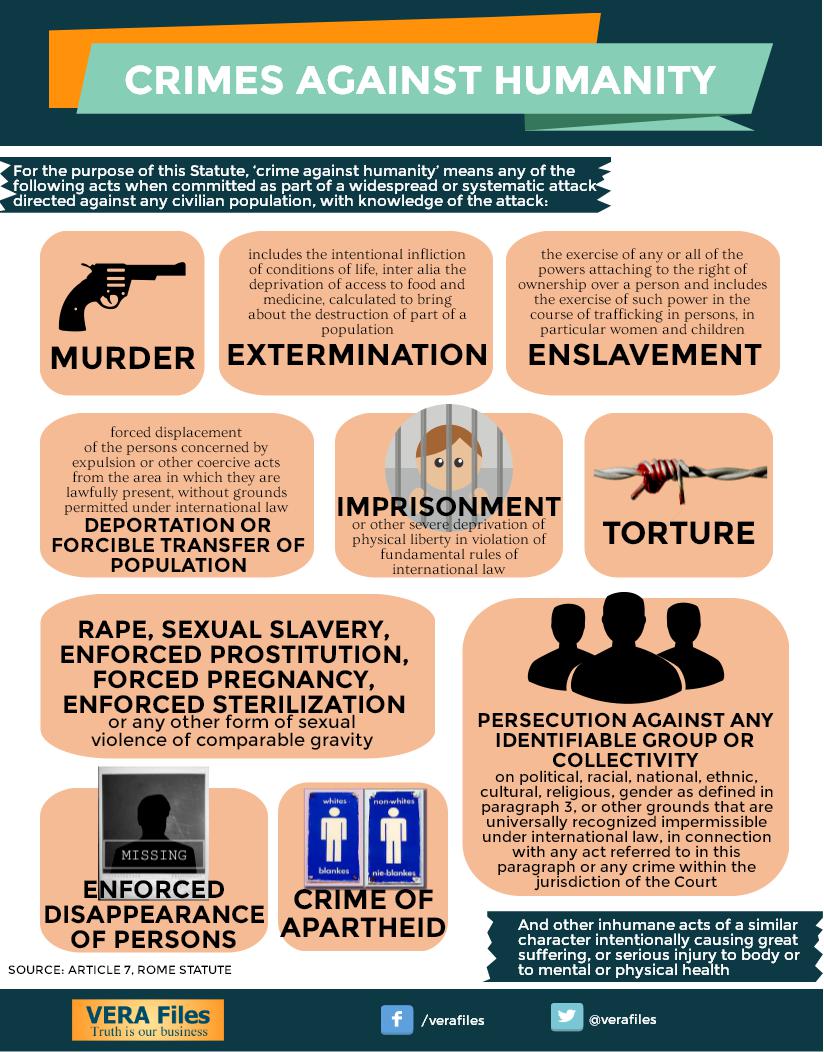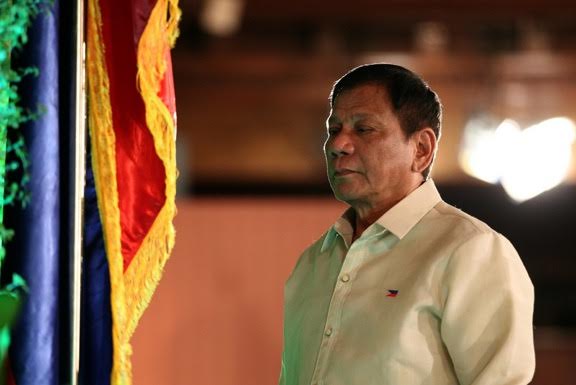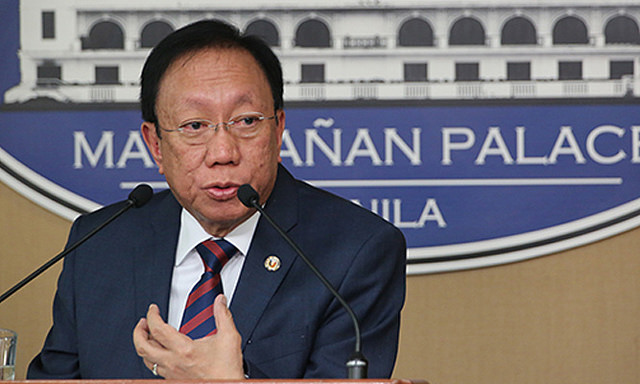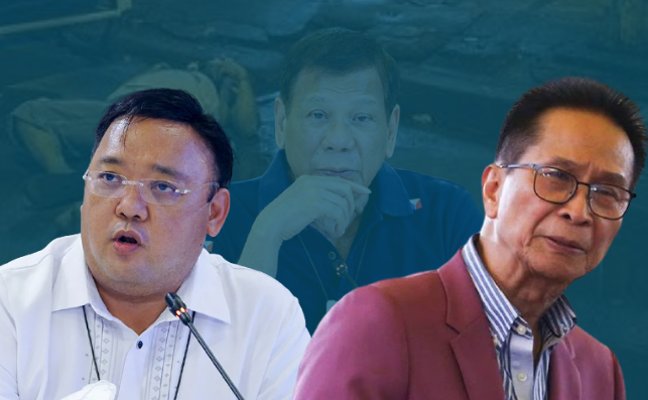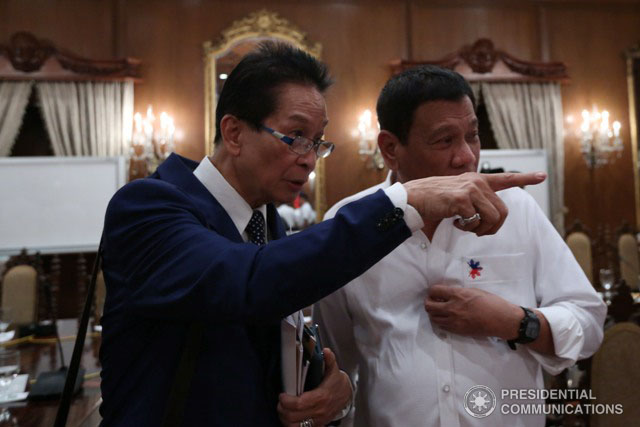It has been reported that self-confessed hitman and former member of Davao Death Squad, Edgar Matobato will file a case against president Rodrigo Duterte with the International Criminal Court. VERA Files is reposting this piece, first published Sept. 3, 2016.
PRESIDENT Rodrigo Duterte invoked presidential immunity when he threatened to kill criminals and drug addicts during his Aug. 5 speech before troops in Capiz.
“’Pag ayaw magpa-areglo ng kaso, patayin. Parang lahat na. Salvage dito, salvage doon. Because when I became mayor, I said, “If you’re a criminal, if you’re a drug addict, if you are a bullshit here—get out of my city because I will kill you.”
(Source: Talk to the Troops, Aug. 5, 2016. Watch 16:57–17:03)
The president was firm in saying he cannot be held criminally liable.
“Mag-order ako ng patay. You cannot arrest me. May immunity ako.”
(Source: Talk to the Troops, Aug. 5, 2016. Watch 17:43–17:54)
FACT
The 1987 Constitution did not retain the provision in the 1973 Constitution (Article VII, Section 7) granting the president immunity from suit. The 1973 Constitution had stated, “The President shall be immune from suit during his tenure.”
Various jurisprudence, however, state the rationale for granting the president immunity from suit “is to assure the exercise of presidential duties and functions is free from any hindrance or distraction.”
(Source: Soliven v Makasiar, G.R. No. 82585)
But such privilege can be invoked only within the country’s jurisdiction.
Outside the Philippines, the International Criminal Court (ICC) can hold Duterte criminally liable.
In a privilege speech, Kabayan Party-list representative Harry Roque said the principle of state immunity granted to a sitting president “is not an effective shield against the ICC.”
The Rome Statute — the treaty that created the ICC — applies to all persons, including the Head of State or government.
Article 27 states:
“Immunities or special procedural rules which may attach to the official capacity of a person, whether under national or international law, shall not bar the Court from exercising its jurisdiction over such a person.”
Roque said under the ICC, the state is given the primary jurisdiction to try these cases, and the ICC only steps in when the concerned state fails to prosecute an international crime.
Article 5 of the Rome Statute limits the jurisdiction of the International Criminal Court to the most serious crimes, including crimes against humanity.
Article 7 defines crimes against humanity as any act committed as part of a widespread or systematic attack directed against any civilian population, with knowledge of the attack.
“By definition, crimes against humanity may be committed even in times of peace, without the existence of an armed conflict,” Roque said.
Republic Act 9851 or the Philippine Act on Crimes Against International Humanitarian Law, Genocide, and Other Crimes Against Humanity was also passed into law in 2009, which, according to Roque, is meant to implement the country’s obligations as party to the Rome Statute.
In 2011, the Philippines became the 117th State Party to the Rome Statute of the ICC. Just last year, former University of the Philippines Law dean Raul Pangalangan was elected as ICC judge.
In its history, the ICC has indicted leaders.
One of them was Sudan president Omar Hassan Ahmad Al Bashir who was indicted of five counts of crimes against humanity, two counts of war, and three counts of genocide committed in Darfur, Sudan.
Another was president Uhuru Muigai Kenyatta of Kenya who was accused of five counts of crimes against humanity because of the 2007-2008 post-election violence.
“Even without actual or direct participation, the President can be indicted for crimes under the principle of Command Responsibility so long as he knew that such crime was being committed, and he failed to take all necessary and reasonable measures within his power to stop such acts,” Roque said. “The ICC does not need to wait for news about the massacre of an entire town or barangay before it investigates.”
UPDATE
How is an ICC indictment carried out?
Lawyer Romel Bagares said an international warrant of arrest is issued. But it will have to be enforced by member-states. As in the case of Sudan, whose president has been indicted, some have refused to heed it. The result at least is that he is unable to travel beyond African states that have rejected the warrant.
Theoretically the ICC can ask the UN Security Council to issue a binding resolution to member-states to enforce the warrant. But it’s worth taking note that China and Russia sit in the Council.

